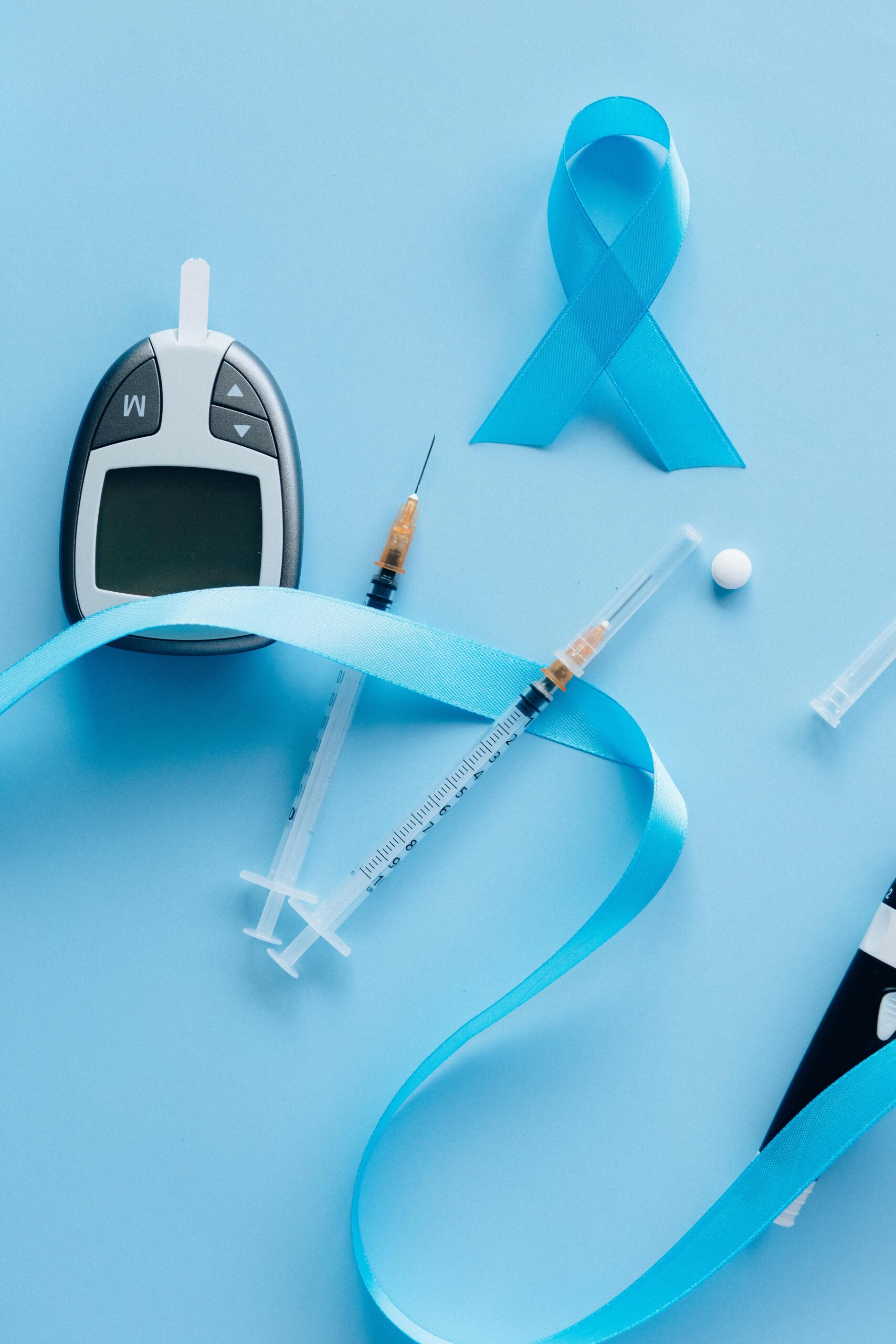You may not realize it, but the connection between diabetes and kidney function is an intricate dance that can greatly impact your health. In this article, we will explore the fascinating interplay between these two conditions, shedding light on how diabetes can affect your kidneys and vice versa. By understanding this relationship, you will be better equipped to take proactive steps towards managing both conditions and safeguarding your overall well-being. So, let’s dive in and uncover the secrets behind the interplay of diabetes and kidney function.

Diabetes and Kidney Disease
Diabetes is a chronic condition that affects millions of people worldwide. It is characterized by high blood sugar levels due to either the inadequate production of insulin by the pancreas (Type 1 diabetes) or the body’s inability to effectively use the insulin produced (Type 2 diabetes). While diabetes itself can lead to various complications, one of the most significant and common complications is kidney disease.
Diabetes as a leading cause of kidney disease
Diabetes is the leading cause of kidney disease, also known as diabetic kidney disease or diabetic nephropathy. It accounts for approximately 44% of all cases of kidney failure in the United States. When diabetes is not well-managed, the excess sugar in the blood can damage the blood vessels in the kidneys, leading to kidney dysfunction and eventual kidney failure.
Risk factors for developing kidney disease in diabetes
Several factors increase the risk of developing kidney disease in individuals with diabetes. These include:
- Poorly controlled blood sugar levels: Consistently high blood sugar levels can increase the risk of kidney damage.
- High blood pressure: Uncontrolled hypertension can significantly contribute to the progression of kidney disease in diabetes.
- Genetics: Family history of kidney disease or diabetes can increase the risk of developing kidney disease in individuals with diabetes.
- Smoking: Smoking and diabetes together can have a synergistic effect on kidney damage.
- Obesity: Being overweight or obese can exacerbate the risk of kidney disease in individuals with diabetes.
- Duration: The longer an individual has diabetes, the higher the risk of developing kidney disease.
Mechanisms of Kidney Damage in Diabetes
Understanding the mechanisms through which kidney damage occurs in diabetes is crucial for effectively managing and treating the condition.
Glomerular injury and hyperfiltration
The glomeruli, small filtering units in the kidneys, can be damaged by the prolonged exposure to high blood sugar levels. This damage is known as glomerular injury. Additionally, the kidneys may undergo hyperfiltration, a condition in which they work harder than normal to remove waste products. Hyperfiltration places additional stress on the kidneys and can contribute to their deterioration over time.
Renal inflammation and oxidative stress
Inflammation and oxidative stress play significant roles in the progression of kidney disease in diabetes. The elevated blood sugar levels in diabetes trigger inflammatory responses in the kidneys. This chronic inflammation, combined with increased oxidative stress, leads to further damage and impairment of kidney function.
Diabetic Kidney Disease Stages
Diabetic kidney disease progresses through different stages, each characterized by specific changes in kidney function.
Stage 1: Hyperfiltration
In the early stage of diabetic kidney disease, the kidneys compensate for the damage by increasing their filtration rate. This hyperfiltration is an attempt to filter out more waste products, but it is also a sign that the kidneys are under increased strain due to diabetes.
Stage 2: Microalbuminuria
As the disease progresses, the kidneys start to excrete small amounts of protein called albumin into the urine. This condition, known as microalbuminuria, is one of the first signs of kidney damage in diabetes. Regular screening for microalbuminuria is essential for detecting kidney disease at an early stage.
Stage 3: Overt Proteinuria
In stage 3, the kidneys continue to leak increasing amounts of albumin into the urine, leading to overt proteinuria. This increased protein loss is indicative of significant kidney impairment and requires prompt medical intervention.
Stage 4: Declining Kidney Function
At this stage, the kidneys’ ability to filter waste products begins to decline significantly. There may also be a decrease in the production of erythropoietin, a hormone responsible for maintaining healthy red blood cell levels. Complications such as anemia may arise, requiring medical management.
Stage 5: End-Stage Renal Disease
End-stage renal disease (ESRD) is the final stage of diabetic kidney disease, where the kidneys can no longer function adequately. Dialysis or kidney transplantation is necessary to sustain life at this point.
Diagnosis and Screening
Early diagnosis and regular screening are crucial for identifying diabetic kidney disease and managing it effectively.
Urine tests for albuminuria
Urine tests play a vital role in detecting the presence of albumin in the urine. Microalbuminuria and proteinuria can be identified through a simple urine test. Routine screening should be performed at regular intervals, especially in individuals with diabetes or those at high risk.
Estimated Glomerular Filtration Rate (eGFR)
The estimated glomerular filtration rate (eGFR) is a measure of kidney function and is calculated using serum creatinine levels, age, gender, and other factors. This test provides an estimate of how well the kidneys are filtering waste products from the blood. Monitoring eGFR levels regularly is essential for identifying declining kidney function.

Management and Treatment
Once diabetic kidney disease is diagnosed, various management strategies and treatments can help slow down its progression and protect kidney function.
Blood sugar control
Tight blood sugar control is crucial for preventing or delaying the onset of diabetic kidney disease. This involves monitoring blood glucose levels regularly, following a balanced diet, and taking prescribed medications as directed.
Blood pressure management
Controlling high blood pressure is essential for managing kidney disease in diabetes. Medications such as angiotensin-converting enzyme inhibitors (ACE inhibitors) or angiotensin receptor blockers (ARBs) may be prescribed to help lower blood pressure and protect the kidneys.
Medications for kidney protection
Certain medications, such as sodium-glucose cotransporter-2 (SGLT2) inhibitors and glucagon-like peptide-1 (GLP-1) receptor agonists, have been shown to have kidney-protective effects in individuals with diabetes. These medications can help reduce the risk of kidney disease progression.
Dietary modifications
Following a healthy and balanced diet is essential for managing diabetic kidney disease. This includes limiting salt intake, reducing the consumption of processed foods and refined sugars, and focusing on fresh fruits, vegetables, lean proteins, and whole grains.
Regular monitoring and follow-up
Regular monitoring of kidney function, blood sugar levels, and blood pressure is vital for managing diabetic kidney disease effectively. This ensures that any changes or complications are identified promptly and appropriate interventions are initiated.
Complications and Outcomes
Diabetic kidney disease can lead to several complications and have a significant impact on overall health and quality of life.
Cardiovascular disease risk
Individuals with diabetic kidney disease are at an increased risk of developing cardiovascular diseases, such as heart attacks and strokes. Proper management of blood sugar levels, blood pressure, and cholesterol levels is crucial to reduce this risk.
Risk of other organ damage
Uncontrolled diabetic kidney disease can affect other organs, including the eyes, nerves, and circulatory system. Regular monitoring and appropriate management strategies are essential to prevent further organ damage and complications.
Impact on quality of life
Diabetic kidney disease can have a substantial impact on an individual’s quality of life. The need for dialysis or kidney transplantation, multiple medications, dietary restrictions, and constant monitoring can be emotionally and physically challenging. Psychological support and counseling are vital to help individuals cope with the challenges and maintain a positive outlook.

Prevention and Lifestyle Modifications
Preventing the onset and progression of diabetic kidney disease involves making certain lifestyle modifications and adopting healthy habits.
Maintaining healthy blood sugar levels
Regular monitoring of blood sugar levels and following a diabetes management plan, which includes proper medication, a balanced diet, and regular exercise, can help maintain healthy blood sugar levels and prevent further kidney damage.
Managing blood pressure
Controlling high blood pressure is crucial for slowing down the progression of kidney disease. Regular monitoring, taking prescribed medications, reducing salt intake, and maintaining a healthy weight can all contribute to managing and controlling blood pressure levels.
Quitting smoking
Smoking is detrimental to overall health and can significantly worsen kidney disease in diabetes. Quitting smoking and avoiding exposure to secondhand smoke can have a positive impact on kidney function and overall well-being.
Regular exercise
Engaging in regular physical activity can help improve overall health and manage blood sugar levels. Consultation with a healthcare professional is recommended to develop an exercise plan suitable for individual needs and capabilities.
Maintaining a balanced diet
A balanced diet that focuses on fruits, vegetables, whole grains, lean proteins, and healthy fats is essential for managing diabetic kidney disease. Limiting sodium and refined sugars while staying adequately hydrated can further support kidney health.
Research and Advances
Ongoing research is continuously uncovering new insights into the interplay of diabetes and kidney function. Some areas of focus include:
Intensive glucose control studies
Researchers are exploring the effects of intensive blood sugar control on the prevention and progression of diabetic kidney disease. These studies aim to determine the optimal targeted blood sugar levels that can effectively protect the kidneys.
Novel therapies for diabetic kidney disease
Efforts are being made to develop new therapies and medications targeted specifically at preventing and treating diabetic kidney disease. Emerging treatments, such as certain anti-inflammatory drugs or drugs that directly target the pathways involved in kidney damage, show promise in reducing disease progression.
Patient Education and Support
Providing education and support to individuals with diabetes and kidney disease is crucial for their overall well-being and effectively managing the condition.
Educating patients about diabetes and kidney disease
Healthcare professionals play a vital role in educating patients about the connection between diabetes and kidney disease, as well as the importance of regular screenings, medication adherence, and lifestyle modifications. Empowering patients with knowledge can enable them to actively participate in their own care.
Psychological support and counseling
Managing a chronic condition like diabetic kidney disease can be challenging both physically and emotionally. Mental health support, counseling, and support groups can play a significant role in helping individuals cope with the emotional and psychological impact of the disease.
Conclusion
Diabetic kidney disease is a significant complication of diabetes and can have a profound impact on an individual’s health and quality of life. Understanding the interplay of diabetes and kidney function is crucial for early diagnosis, effective management, and prevention. Regular screening, lifestyle modifications, proper blood sugar and blood pressure control, and tailored treatment strategies can all contribute to slowing down the progression of kidney disease and preserving kidney function. With ongoing research and advances in therapies, the future holds hope for better outcomes and improved quality of life for individuals living with diabetes and kidney disease.
